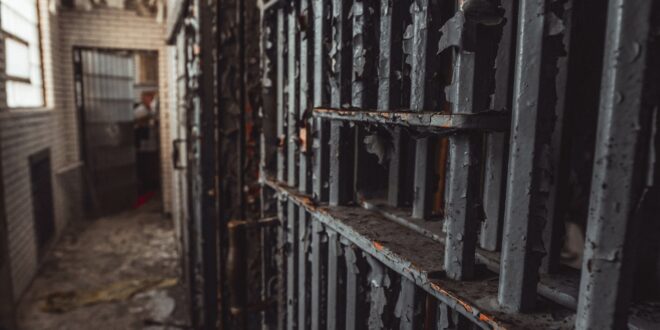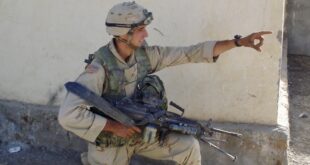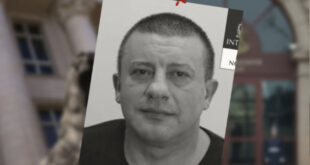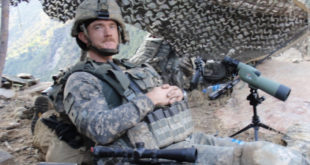If there’s a lesson to be learned from merc work, it’s this: you are on your own.
When you put your trust in others, or rely on outside forces for salvation, you’re buying yourself a one·way ticket to the oblivion of a mercs’ limbo: jail if you’re lucky, a bullet in the back of your neck in some godforsaken backwater if you’re not.
On 14 March 1986, eight American mercenaries got lucky – if you can call it that. They were arrested by Brazilian Federal Police off the coast of Rio de Janeiro; their ship, the Nobistor, and its cargo of weapons, ammunition and other military gear impounded. Most of the men had thought their mission – the attempted overthrow of the west African country of Ghana – was over. Bad planning and misfortune had aborted the plot, and now they were going home.
But the real adventure – surviving 10 months of Third World “justice” and their escape to freedom – had only just begun.
Julio Raul Rodriguez – Raul, as the other mercs called him – was below decks of the Nobistor, taking what he figured was his final shower before flying back to the States. He was partly right. It would be his last shower for some months to come.
The business end of a shotgun suddenly thrust through the shower curtain and planted itself against his ear. “Hey,” he called out jokingly, soapsuds blocking his vision. “Take it easy. You’re next.”
Moments later, wearing only a towel and covered in dripping, soapy water, he was hustled topside by gun-toting Brazilian Federal Police. With a shotgun pointed at his head, he was forced to spread eagle on the deck along with his fellow mercs.
Just minutes earlier, Tim Carmody and Steve Hedrick had been sunning themselves on the bridge of the Nobistor. This was their fourth day in Rio’s harbor and they were bored. “Send lawyers, guns and money, ’cause the shit has hit the fan” wailed from their tape deck while the two mercs caught some sun before flying home.

Carmody spotted a small naval patrol boat cutting its way across the harbor toward the Nobistor. Even from a distance they could see a number of people on board, most dressed in a variety of civilian clothes and sporting beards and long hair.
“Here comes the boat,” Carmody said. “Must be immigration.”
He and Hedrick and the six other mercs wiling away their time on the 120-foot ocean-going tug had little reason to doubt that it was anything else.
No Foreign Ships May Land
A few days earlier, on 10 March, the Nobistor had dropped anchor off Rio. They weren’t able to dock, the captain told them, because of a harbor pilots’ strike. No foreign ships would be allowed to land.
They’d also been told that Oscar Garcia, representative of the Nobistor’s shipping company, Geomater, would be on hand to arrange transit visas for the Americans, clear the cargo through customs and berth the Nobistor. A simple matter. They would be on their way out of Brazil shortly.
Also on hand to greet the Nobistor was Louis Kabut, the Argentine intelligence and liaison officer who had organized the weapons and other gear during their stay in Buenos Aires . During meetings on shore with merc leader John Early, Kabut told Early that he had another captain and crew lined up to take the mercs back to Ghana to carry out the coup against Flight Lieutenant Jerry Rawlings.
Early told him that plan was out. Kabut was adamant that the coup attempt go forward.
Early responded that other arrangements had been made with Garcia for handling the weapons. Kabut stayed only two days then flew back to Argentina.
During those first few days in Rio, the rest of the merc force sat idle aboard the Nobistor. The ship’s captain, Eduardo Gilardoni, had collected the mercs’ passports and banded the conex containers containing their weapons with customs seals given him before departing Buenos Aires. Everything, they were told, was in order. But it was taking too long; the mercs were getting nervous, sitting on top of some six tons of military gear in a foreign harbor, without any formal landing documents.
On Friday morning, 14 March, they pushed the issue. They decided to contact the American Consulate in Rio themselves and organize their own way home. Piling into one of their rubber Zodiac boats which had been destined for a beach assault against Accra in Ghana, the eight mercs gunned across the harbor to shore.
After a lengthy search for a public telephone, they finally got through to the consulate and the duty officer. After explaining their plight in general terms, the DO told them to call back later, that only the consul, Ken Sackett, could help them out.
They frittered away the next few hours, drinking coffee and trying to look inconspicuous.
They were, after all, in Brazil illegally.
Their next call got them through to Sackett. Could he help them out?
“Sure,” the State Department man told them. ”I’ve got some close friends in immigration. We’ll take care of everything. You guys make sure you’re all on the boat. We’ll send you home.”
They all felt better on the ride back to the Nobistor. They put their faith in Sackett, a career diplomat with other foreign service postings in South America.
Rodriguez went to shower, Carmody and Hedrick to work on their tans, and the rest to square away their gear before going home.
Safeties Off, Weapons at the Ready
When the naval patrol boat closed in on the Nobistor, Carmody and Hedrick started waving. Just normal procedure, they thought. Surely the U.S. consul and Brazilian immigration were onboard, ready to stamp their passports and send them on their way.
Not quite.
When the patrol boat touched the side of the Nobistor, 15 H&K MP5-and shotgun toting Federal Policemen – the “elite” of Brazil’s police – swarmed onboard, safeties off, weapons ready to fire. The mercs were punched and pushed topside, then with weapons shoved in their backs, forced face down on the deck . The feds nervously clicked selector switches back and forth, knuckles white on triggers . They were ready to shoot.
The mercs were roughly searched, all their watches and money going into the pockets of the shaggy-haired and bearded police.
Within minutes the Nobistor was underway, heading for the police dock in Rio harbor. The mercs were cuffed to each other; the feds broke open the conex containers holding their weapons and gear.
“They went bananas,” one of the mercs said later. “It was like they found a bunch of toys. Pistols disappeared into pockets, and they started loading the weapons into private cars.”
With sirens screaming and lights flashing, the Federal Police rushed the eight Yanks to the holding prison in Rio. Wearing only what clothes they had on when the police swarmed over them, the mostly shirtless and shoeless men were thrown into cells: team leader Early and Bob Foti into one, the other six mercs into another.

They had one visitor that night. The consulate duty officer came by to tell them: “It’s probably only a visa problem. We’ll get it sorted out in a few days.”
“No problem,” the mercs were told. It was a phrase they’d come to hate over the next months.
Most of the merc force had seen action in various hotspots around the world -Vietnam, Rhodesia, South Africa , EI Salvador, Lebanon and others -so they were used to tough living conditions. But prisons are different. They had no control over their lives, no other options but to just sit and exist.
Crammed into a 12 x 15-foot cell with only a single caged, fly-and-mosquito splattered bulb for light, the six mercs took stock of their situation. They quickly agreed to stick to their cover story -guards for a .legally purchased shipment of arms destined for the Ghanaian Ministry of Defense -and just wait it out. They had no other choice.
Twenty-five days passed with no word from Sackett although, as the six mercs found out later, he had been in close contact with the team’s leaders, Early and Foti. And each day brought new misery.
Their beds were 5-foot concrete slabs minus the luxury of bedding. Mosquitos, breeding in the dank, stagnant watery scum covering their cell floor, left golfball-sized welts which covered the shirtless prisoners. A crud-covered hole in the floor served as their toilet and as a source of amoebic parasites, and a rusted pipe as their water supply when the guards got around to turning it on. No soap, toothbrushes, medicines -just an increasing sense of abandonment.
Finally, the consul came to see the troops, two at a time. “It’s only a visa problem,” he told the gaunt, filthy men. “You won’t need a lawyer.” What Sackett didn’t tell them about Brazilian law, according to one of the mercs, was that after 21 days they had to be charged or released. They were on their 25th day.
“Well, what the hell are you doing for us?” Cannody shot at the neatly trimmed and suited diplomat. “Have you seen our cells? We’re dirty and sick; Fred (Verduin) has a boil the size of a melon on his neck.”
Sackett shrugged. The U.S. government had no authority over the Brazilian penal system.
Disgusted, the men returned to their cell.
Some 45 days later, after existing -and steadily deteriorating -on a bread, rice and bean diet, the mercs were told they were going on trial. The news came as a complete shock. Up to now the problem was, or so they’d been told by the consulate, that of illegal entry into Brazil. There’d been no mention of other charges, much less a court trial.
A mere formality, the mercs were told. They’d be going home soon. No problem. The men were allowed to shower and change into clean clothes taken from the Nobistor. Under guard, they were driven to the courthouse to be met by a media circus from the Brazilian press. Then, after a quick appearance before a judge -in which the proceedings were only vaguely translated for them -the mercs were hustled back to their cells. They still didn’t know what charges had been leveled against them.
Two weeks later they made a second court appearance where the prosecution presented its case: suspicion of contraband involving the weapons aboard the Nobistor. Judge Julieta Lunz tore into the eight mercs for the benefit of the Brazilian television cameras set up in the courtroom. They were guilty as sin, she screamed. They had no respect for Brazil or Brazilian law. When the judge had finally vented her spleen, the charade of justice carried on.
“They Have No Defense”
Various police officers were called to testify.
What happened to the weapons? We turned them over to the army, they said.
A Brazilian army major wearing U.S. jump wings was called next. As he passed the eight mercs standing in the back of the courtroom, he flashed a thumbs up and said, “Airborne!”, He testified that he knew nothing about the weapons. On his way out he flashed another thumbs up accompanied by a crisp “Airborne!”
The mercs shook their heads. Big fucking help.
All through the proceedings when their lawyer, selected from a U. S. Consulate approved list, tried to present any kind of defense, the judge cut him off. They had no defense, she ranted.
Their sentences came in July. They found out that they’d been convicted of suspicion of contraband and of forming a group to create that suspicion. That was all it took. John Early and the Nobistor’s captain received five years each (one year over the maximum sentence allowed under Brazilian law) while the remaining seven mercs were each slammed with four years. News of the verdict came from Carmody’s family who had read it in a San Jose, California, Mercury News article.
Sackett hadn’t bothered to tell them.
Agua Santa – “Holy Water” – prison was their next stop. Located out in the slums of Rio, Agua Santa was the processing point to b.etter, or worse, long-term prisons. They quickly found out their fate.
“The American consul has really fucked you guys,” the warden told them.
“Foreigners go to the easy prisons, but I can’t send you there. You’re going to Helio Gomez. It’s for hard cases.”
Through the end of July and early August the mercs wondered how much worse any prison could be than Holy Water. Food, when it came, was something called liver stew: a bucket filled with a grayish watery gruel with bits of unidentifiable animal floating in it. Medical treatment was nonexistent, and skin diseases, internal parasites, dengue fever and conjunctivitis plagued them.
Even the other prisoners, mostly skin and bones themselves, told the Yanks that “you guys look like shit!”
The Yanks did, however, begin to learn the ins and outs of Brazilian prison life: who could be trusted, who could be bribed (money, hidden in packages, was by now reaching them from the States), who was dangerous; but mostly, just how to survive on a day-to-day basis. It was no easy task.
After a month in Agua Santa they were told to gather their few possessions and get ready to move. Helio Gomez prison, southwest of Rio along the coast, was their destination.
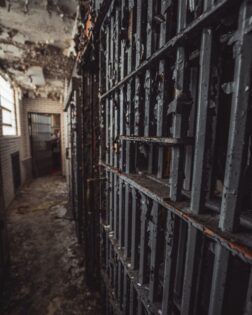
It was a place where criminals with up to 360-year sentences went to serve their time -and die.
Helio Gomez was a world unto itself. Filth, disease, rats, torture and gang violence were the orders of the day. Medicine and food were available -for a price. Some packages from the States, including those sent by the Soldier of Fortune staff, made it through after a thorough ransacking by the guards. The U.S. Consulate supplied little; in fact, it had been months since the mercs had seen Sackett. Except for family and friends back in the States, they were completely on their own.
Days, then weeks, and finally months passed. The mercs settled in as best they could, making contacts and friends among the Red Commando, the main gang which controlled nearly every facet of prison life. Their cell leader, a hardened killer called “21 ” for the 21 murders he had committed , took most of the mercs under his wing and showed them the ropes.
“I can’t believe you’re here,” he told them. “The only other foreigners to come to Helio Gomez were an Englishman and an Italian, and they died last year from hepatitis.”
All foreigners, he continued, were able to buy their way into Brazil’s version of country- club prisons where it was easy to buy your way out or escape. He’d found out through his connections that the mercs had been sent to Helio Gomez on the highest authority . It was obvious that someone, or some government, wanted them “vanished.”
Based on their treatment from Ken Sackett of the U. S. Consulate in Rio and the stonewall their families faced from the State Department, many of the mercs believed Uncle Sam wanted them kept quiet and out of the way. If this was a government sanctioned operation, too many embarrassing questions might arise if the mercs were on the loose and free to talk.
“Make Them Vanish”
By early October the mercs had established themselves in Helio Gomez. In return for favors and protection from another prominent prison gang, they passed the time by teaching Red Commando members – mostly city-dwelling bank robbers, hit men and smugglers – the rudiments of military skills: small-unit tactics and small-arms techniques, land navigation and homemade weaponry. As foreign mercenaries, and because they didn’t use drugs -rampant in the prison -or the freely available transvestites, they were given favored status.
There was yet another disturbing element that haunted the eight Americans , one which made them fear for their lives over and above the day-to-day hell of Brazilian prison life. Argentina, its military intelligence and other agencies deeply involved in the Ghana coup plot, wanted them extradited for failing to pay customs duties on their Zodiac rubber boats. The real reason, they felt, was to simply make them vanish so as not to embarrass the Argentine government.
And “vanish” meant a bullet in the back of the head.
Days filled with uncertainty crept by while scorching heat, disease and a nearly nonexistent diet ground the men apart. Prisoner riots erupted frequently and were brutally crushed by the guards. At night, scores of insane prisoners were let loose to wander the hallways, constantly moaning and crying out. They were the guards’ early warning “geese;” If prisoners tried to escape, the geese would put up a horrendous racket. It was bedlam, and the mercs knew they’d never live out their sentences.
Then, in the first week of October, they found the light at the end of the tunnel. A Brazilian court of appeals, reviewing their travesty of a trial, overturned their convictions . They had violated no Brazilian laws, the court found. They were free men. Or so they thought.
After hurried farewells to their Red Commando cellmates, the mercs gathered their few possessions and were hustled downstairs to outprocess from Helio Gomez. Awaiting them were Brazilian Federal Police.
“The Brazilian Supreme Court is reviewing Argentina’s request for extradition,” the men were told. “You will be detained until a decision is made.”
Chained and under heavy guard, the eight men were driven back to the Federal Police prison in Rio. From jail to freedom and back to jail again in a few short hours. It was about as much as they could take.
Rumors Are Rampant
Days of waiting grew into weeks of waiting, and still no word came as to their fate. Rumors were rampant: They would be released, they would be expelled, the supreme court has granted extradition, the court has denied extradition. Uncertainty was as certain as the hungry mosquitos that hovered over them every day and night.
In the third week of November their cell doors flew open in the middle of the night. Guards yelled at them to get dressed. They were to be moved.
Bleary-eyed and groggy, the eight mercs were chained and led outside to a waiting van. They had no idea where they were going until the van screeched to a halt at Rio’s airport.
Extradition to Argentina? The thought crushed them like an ice-cold vise.
Expulsion back to the States? No one would say.
At 0600 they knew at least part of the answer. Still chained and under armed guard, they boarded a civilian flight to Brasilia, the capital. They had no idea why.
The mystery behind their sudden move remained just that, even as they were processed into their new home -another federal prison. This one, however, was a far cry from the stench and misery of Agua Santa, Helio Gomez and the Federal Police jail in Rio. It was, by Brazilian standards, a country club.
They were allowed outside to sun and exercise, and given decent meals and hot showers. Cells were clean and bedding provided, and within days their physical and mental condition improved dramatically. But what was behind it? Were they going home? Did the Brazilians want them cleaned up and healthy before booting them out?
After a week of wondering, the answer came. A PBS (Public Broadcasting System) film crew from San Francisco was coming to record their story. It was to be show and tell; the Brazilians wanted to make damned sure that the American public saw how well the men were being treated.
But the big question that loomed over their heads was that of extradition to Argentina.
What would the Brazilian Supreme Court decide? Their verdict was announced on 10 December -Human Rights Day. On a 9-0 vote, ·the court granted Argentina’s. request.
For some of the mercs that decision was unacceptable. The Great Escape is never far from most prisoners’ thoughts. From the time of their sentencing, the mercs who had not been beaten down physically or mentally by the inhumanly harsh Brazilian prison system continually planned their break to freedom. Through coded letters to friends and family back home, plots were hatched, examined and then discarded as unworkable.
One key problem continued to plague their stateside contacts and the mercs themselves: If they could escape, how would the men get out of Brazil’s 3.3 million squaremile countryside undetected? Contacts made in Rio , where the Americans spent most of their incarceration, wanted thousands of dollars per man to help. But could they be trusted? The lure of large rewards for the escaped Americans might prove too tempting.
A few private security organizations around the world were contacted, but their fees were just too high. Boats, planes and other transport were considered, but all were rejected for a number of reasons. The problem, it seemed, was insurmountable.
If -and it was a big “if” -the men could break out and stay free, there was an escape network available across the border in Bolivia. It had taken months to set up and had cost acquaintances back in the States a hefty sum, but it was viable. And it was, as far as South American underground networks went, reasonably trustworthy.
The mercs only had to get there.
The Escape Committee
When word of their impending extradition to Argentina reached them a few days before the official announcement, the fiveman escape committee -Tim Carmody, Fred Verduin, Steve Hedrick, Sheldon Ainsworth and Steve Sosa -knew they had to act fast.
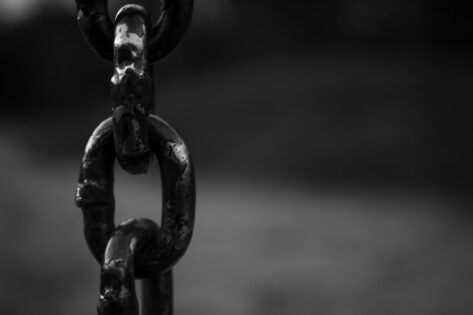
Through various methods they had managed to keep their escape kit -$800 smuggled in from outside, Brazilian-made clothing and small carry bags, food, vitamins and medicine (C-rations, MREs, hard candy and other gear) and various forns of identification -out of the anxious grasp of the Brazilian guards. More important to their plan, though, were four hacksaw blades sent by Carmody’s wife, Melody, secreted inside a box of powdered milk and delivered, albeit unknowingly, by U.S. consular officials.
Two major problems now confronted the men. They weren’t familiar with their new prison’s layout or routine, and they still had no plan for making their way to the relative safety of Bolivia. But desperation made the choice for them. It was either break out now or face a cloudy -and potentially deadly -future in Argentina.
One major factor working in their favor was the laziness of the guards. They lived in their own cell block and, after the first few days, the guards’ check of locks became cursory. They also had all-day access to the shower block at the end of their hallway. Its roof, they quickly noted, was caged but open to the outside. If they could only cut through the bars on the roof. …
For days the escape team worked frantically, some sawing on the shower room ceiling and others cutting the locks on their cell doors. To cover the noise of blades grating on metal locks and bars, the men sang every song they could remember and made up words for those they couldn’t -at the top of their voices. To camouflage the cuts, they devised a type of putty made of toothpaste, metal shavings and dirt.
On Saturday, 13 December, everything was a go. One good yank on their escape hatch in the shower room ceiling would break it free. Dummies made of bedding were fashioned to stick under blankets to cover their absence. Gear was made ready to pack at a moment’s notice.
But they hadn’t counted on the unexpected.
Lockdown
That day, riots broke out in the streets of Brasilia. A complete lockdown went into effect as extra military police guards were added to handle the influx of new prisoners. Dog patrols and searchlights swept the prison as evening fell. They waited anxiously for guards to roust them out and search their cells, but their part of the prison remained quiet. Still, there was no hope of getting out undetected that night. Five disappointed mercs settled in to bide their time.
After a long and restless night, Sunday morning broke cloudy and cool. Quiet blanketed the prison. The riots were broken; back-up policemen and soldiers were released from beating heads and went home. As the mercs expected, a particularly lazy and inept guard crew came to pull Sunday duty.
All day they carefully watched for changes in the guards’ routine, any indication that word of their escape plan had leaked. Nothing. Around 1730 they put their plan into action.
Lockdown of the shower room and cells was supposed to take place at 1800 followed by a guard changeover. Fred Verduin went into the shower room just before 1800 and busily soaped himself up, delaying the changing of the guard . Rodriguez kept up a constant chatter with the guards, asking for coffee, cigarettes and reading material anything to keep them busy and off balance. Verduin by now resembled a prune but kept on showering, telling the guards he’d lock himself in his cell when he was finished. The other mercs made a show of locking themselves in, the jimmied locks failing to close completely. Finally, the harassed guards told the Yanks not to bother them anymore that night, and left.
Verduin, using the shower noise as cover, stood up on a flimsy stool and gave the pre-cut escape hatch a healthy yank. The section of bars came free in his hand. He went back to his cell , the cleanest man of the bunch.
Phase one completed successfully.
Around 2130, with the prison quieting down around them, four of the five mercs planning to go over the wall silently packed their gear and stuffed dummies in their beds. Their cell doors opened without any problems, and the four mercs crept down to the shower room. A slight drizzle was falling and searchlights haphazardly punctured the brownish mist. Steve Hedrick was boosted up through the roof and lay flat, scanning the outer courtyard. Guard-dog patrols had been their biggest worry, but Hedrick could see that everyone, dogs included, had taken shelter from the rain inside the guard hut. Hedrick also saw that the klieg lights used to illuminate the grounds pointed out and away from the prison buildings, effectively blinding the guards. And the stretch of wall they’d be climbing down was located between two of the high-intensity floodlights, giving them some shadow for cover.
So far so good. Hedrick flashed a thumbs up to the three other mercs waiting below in the shower room. They handed up their ad-hoc escape rope: white sheets tied together, with a bar of soap acting as the weighted end. Hedrick tossed the sheets over the side, the soap yanking it down into the bushes below.
Carmody, Ainsworth and Verduin climbed up to join Hedrick, getting their first look at the prison’s no-man’s land they’d have to cross. It was wide-open courtyard to the fist checkpoint gate of the inner wall located some 50 meters away. Beyond this they could see a series of buildings ending at the outer wall of the prison.
After that, Brasilia -and freedom.
Keeping as flat as possible against the whitewashed wall , the men started lowering themselves one by one into the darkened bushes below. With the weight of each man, the sheets started ripping. They prayed their rope would hold out, and it did.
Once they were all down, Rodriguez pulled the sheets back inside, untied them, and spread them back onto the bunks. With luck, the guards wouldn’t notice anything amiss until the next morning.
It was now time to put the big bluff into play. Silently, the four men changed into their Brazilian-made clothes, stuffing everything else into their small tote bags. They would go two by two, Cannody and Ainsworth leading, and simply walk out of the prison. Dozens of Brazilian military policemen in civilian clothes were continually moving in and out of the prison, heading for home or coming back from town. With their tote bags -normally used by the Brazilian police to carry submachine guns -they hoped to pass as cops.
The rain picked up as Cannody and Ainsworth approached the first guard shack. They slouched and sauntered, doing their best to look like bored MPs finished with their shift. The pungent aroma of marijuana met them as they neared the guard hut. They waved at the glassy-eyed and indifferent uniformed MP. He waved back.

They walked through the gate and into the next courtyard. “God, these guys are stupid fuckers,” Carmody whispered to Ainsworth.
The outer gate, open for vehicle traffic, was more heavily guarded by MPs and their dogs. But without a second glance from guard or dog, the Americans shuffled past the bored sentries and out into the street. They were free.
Ten minutes later, Verduin and Hedrick joined them near the hospital complex across the street from the prison. Their escape, though just as nerve-racking, was just as easy.
Phase two completed successfully.
Phase three would now become a plan-as-you-go operation. The mercs had a small map of Brazil torn out of a local paper and not much else. Their most immediate step, though, was to get as far away from Brasilia as they could before the alarm went out. Their direction of movement would be west -toward Bolivia.
Hunted
A cruising taxicab stopped for the men a few minutes later. In their best pidgin Portuguese the mercs offered the driver the equivalent of $120 U.S. to drive them to Goiania, a sleepy little town 200 kilometers southwest of Brasilia.
Fred Verduin, who had previously made connections in Rio de Janeiro and felt he might have better luck on his own, left the group at a downtown hotel.
Minutes seemed to drag by as the other three mercs -Carmody, Ainsworth and Hedrick -bounced along in their hired taxi toward Goiania. They knew that within a few hours a country-wide alert would have every policeman and soldier searching for them.
Once in Goiania they were able to catch a bus onward through Rio Verde and then to the tiny village of Jatai, about 500 kilometers southwest of Brasilia. There, they found out, they wouldn’t be able to catch a bus out until the next morning. Without proper identification, they couldn’t check into the local hotel without raising too many questions. After a few enquiries the men holed up in a whorehouse for the night. No questions about their identity were asked.
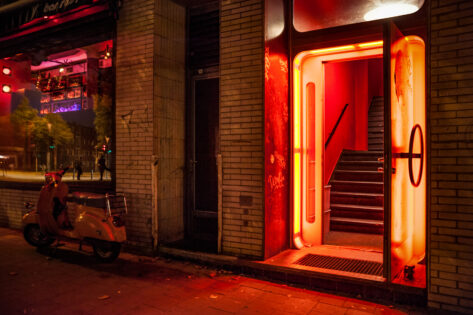
By that time news of their escape had been broadcast on radio and television. Photographs of the mercs taken in prison were flashed on the screen: Sullen, longhaired and scruffily bearded faces stared out at the three clean-shaven and short-haired mercs while they sat in the bordello’s dimly lit, smoke-filled bar. They had taken the time on the evening of their escape to shave and trim their hair. It was a small thing, but now it was paying dividends. Even the off duty policemen lounging around the bar didn’t throw them a second glance.
The next morning, after a phone call back to the States to set the Bolivian escape network into motion, they boarded a jam-packed bus for the 22-hour trip to Campo Grande, located about six hours from the Bolivian border. Brazilian bodies crammed into every niche; the driver charged for seats, standing room in the aisle, and even a seat on the toilet. At every stop, more bodies wedged their way onto the rickety bus, keeping the three men standing upright for most of the journey.
Two days later and nearing exhaustion, they pried themselves out of the bus and stepped onto the bustling streets of Campo Grande. The town swarmed with federal and military policemen. All roads to the border converged through Campo Grande, and there was a continuing high-profile anti smuggling operation in place. And to make matters worse, their pictures appeared in the newspaper. The odds against a clean escape were rising fast.
Through previous arrangements the men were to meet a pilot who had been paid to fly them over the border into Bolivia. They met up with him in a local park. The pilot immediately recognized the mercs from the photos in the paper and turned them down flat. He’d run drugs or guns but not three mercenaries just escaped from jail.
Their contact in Campo Grande, an American from the States who literally put his life on the line to help the mercs out of Brazil, found another pilot who would fly them to the Brazilian border town of Corumba -the smuggling capital of that part of the world.
A quick hop in the pilot’s single-engine plane put them in Corumba’s small airport, followed by a short taxi ride into town. It was like the Wild West: Bars, whorehouses, guns, cops, soldiers -and the occasional shootout -made it easy for the three to keep a low profile. To avoid having to produce their passports, which had been taker by the Brazilian police months ago, they again found rooms in a whorehouse. It was, unfortunately, across the street from a military police battalion barracks, and MPs filled the place around the clock. But even with their photos now prominently splattered across the front page of the papers, no one bothered to notice them.
Bolivia was now only a 15-minute drive away. They spent the night going over their options. According to their contact from the States, Brazilian police manning the various contraband and border checkpoints had been bribed to let them pass through unmolested.
A local taxi driver had also been organized to drive them across. They’d give it a try. But they also agreed that if anything went wrong they’d do whatever it took to break out of Brazil. One way or another, they weren’t going back to jail.
The next morning they met their cab driver.
“No passports, no problem,” he told them. “Everything’s OK.”
Adrenaline surged through the mercs as they approached the first MP checkpoint. If they were stopped, they’d try to bribe the guards. If that didn’t work … they kept their eyes on the MPs’ weapons . The cab driver waved at the guard. He motioned them through.
A few minutes later they could see Bolivia -and the Federal Police border checkpoint.
Cops and MPs were everywhere, searching trucks and cars. A load of bus passengers was spread eagled against a wall, police tearing through their baggage. A Federal Policeman, his mirrored sunglasses flashing in the noonday sun, motioned their cab over. If anything went wrong at this point, the mercs would bailout of the taxi and run like hell for Bolivia. With luck, they might escape a bullet in the back.
The cabbie threw the guard a thumbs up. The guard returned the gesture and smiled. A few minutes later, Carmody, Ainsworth and Hedrick walked across the border into Bolivia.
Ten months after their arrest, they were finally free men.
by John Coleman, a former editor at SOF.
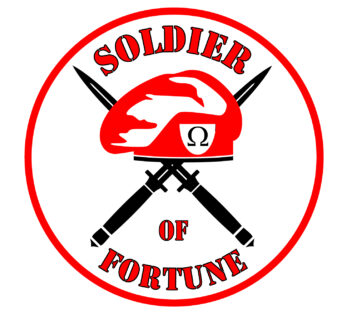
 Soldier of Fortune Magazine The Journal of Professional Adventurers
Soldier of Fortune Magazine The Journal of Professional Adventurers


